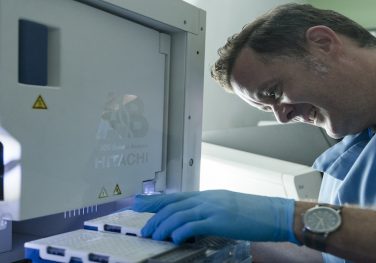University of Oxford
Uncovering the secrets of diabetes
People with diabetes are much more vulnerable to heart attacks and twice as likely to have heart disease. With diabetes affecting more than 470 million people around the world, understanding the link between diabetes and heart-related illnesses is vital.
That’s why we’re funding research from the University of Oxford that addresses this link. It will build on recent findings to explore why current treatments for people with diabetes do not reduce the risk of heart attacks. Instead of focusing on glucose levels, the research will look at stem cell rehabilitation.
- 6% of the UK population are reported to have diabetes.
- Our grant of almost £150,000 will help fund research that will open up new possibilities for diagnosing, preventing, treating and monitoring diabetes.
- Patients with diabetes are twice as likely to die from a heart attack as non-diabetic patients – so this research has the potential to benefit the 476 million people who are diabetic worldwide.

Expert research to help tackle diabetes
Scientists at the Radcliffe Department of Medicine will study the effects of diabetes on ‘lymphocytes function’. Lymphocytes are white blood cells responsible for producing antibodies, killing tumour cells and cells infected with viruses, and regulating the way our immune systems respond. The research findings will be an important springboard to a better understanding of how diabetes distorts and disrupts the function of the immune system – and how this can lead to heart attacks and strokes.
Importantly, the findings will open up new possibilities to treat diabetes, without relying on glucose alone. The research will also inform affordable ways to prevent people from developing diabetes – and increasing their risk of heart attacks – through targeted health information and new public health policy.
“The realisation that diabetes fundamentally reprogrammes the immune system, thereby exacerbating cardiovascular disease and its complications, opens important new opportunities for understanding and treating this globally important disease.”
More Success Stories

The Sinha Lab, Wellcome-MRC Cambridge Stem Cell Institute

The Stevens Group at Imperial College London

